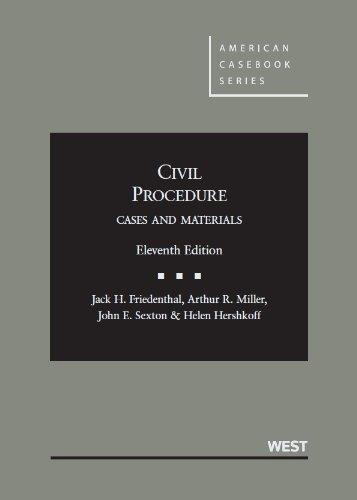5. Can a court assert jurisdiction over a citizen who is absent from the country? In BLACKMER...
Question:
5. Can a court assert jurisdiction over a citizen who is absent from the country?
In BLACKMER v. UNITED STATES, 284 U.S. 421, 52 S.Ct. 252, 76 L.Ed. 375 (1932), petitioner, a United States citizen, was convicted of contempt after refusing to comply with a subpoena issued by the Supreme Court of the District of Columbia and served upon him in France pursuant to a federal statute. The subpoena required him to appear as a witness in a criminal trial that grew out of the Teapot Dome Scandal during President Harding’s administration. The United States Supreme Court concluded that no violation of due process had taken place. As a citizen living abroad, petitioner “continued to owe allegiance to the United States,” and could be held subject to punishment in the courts of the United States for a violation of United States law. Moreover, the statute authorizing service abroad through the consul provided notice and an opportunity to be heard consistent with due process requirements. Id. at 436, 52 S.Ct. at 254, 76 L.Ed. at 382 84.
Step by Step Answer:

Civil Procedure Cases And Materials
ISBN: 9780314280169
11th Edition
Authors: Jack Friedenthal, Arthur Miller, John Sexton, Helen Hershkoff






